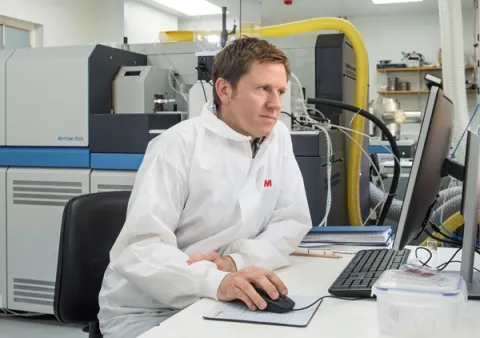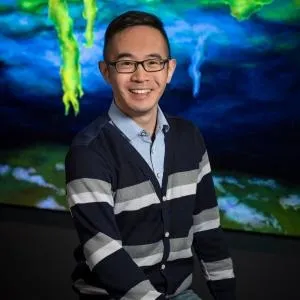About the project
The upper ocean has warmed by ~1°C since pre-industrial times. However, sea surface temperature measurements before the 1980s carry considerable uncertainty. The aim of this project is to reduce that uncertainty by using the composition of coral skeletons to provide an independent ocean temperature record over the last 150 years.
When Earth’s temperature breaches the Paris climate targets of +1.5°C and +2°C depends on the magnitude of warming since the “pre-industrial” era – a loose and undefined time period before the 1900s. Largely due to changes in observation technology and data coverage associated with measuring ocean temperature (Voosen et al., 2024), the quality of historic temperature reconstructions decreases dramatically with time before the 1980s. One way to overcome this problem is to turn to palaeoclimate reconstructions.
In the tropical ocean, the preferred archive is the annually layered aragonite skeletons of stony corals. Since skeletal impurities, such as Li, Mg, Sr, U, vary largely with water temperature (Thompson et al., 2022), by serially sampling long-lived coral skeletons sea surface temperature can be reconstructed in the past.
The aim of this project is to use novel laser ablation-inductively coupled plasma mass spectrometry (LA-ICPMS) techniques to rapidly analyse coral skeleton geochemistry in situ at a high temporal resolution (daily vs. monthly with traditional methods) collecting multiple proxies simultaneously (e.g. D’Olivo et al. 2018). By measuring a number of coral cores from across the Indian Ocean, we will use state-of-the-art statistical and AI-based image processing techniques to perform a climate field reconstruction for this important region that closely tracks the global average.
This field reconstruction will then be used to quantify biases and infill gaps in the historic instrumental SST products. Combining proxy and instrumental data, the goal is to provide an improved and more comprehensive estimate of tropical ocean temperature change since pre-industrial times.
As well as Professor Gavin Foster, and Dr Duo Chan, you will also be supervised by organisations other than the University of Southampton, including
- Professor Jens Zinke from the University of Leicester

